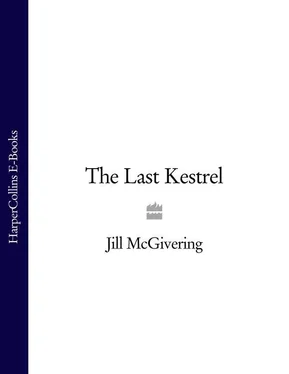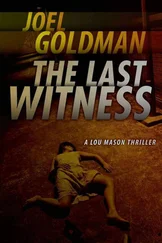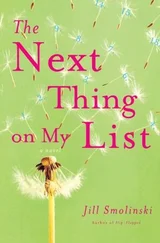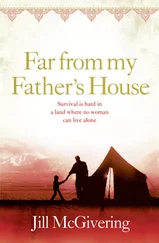She smiled to herself. That meant he’d already exhausted it.
‘Used syringes everywhere. Beards sitting around in dirty vests. Half of them stoned. God help us. And they’re the good guys.’
She seized her chance to cut in. ‘Heard one of the translators got killed,’ she said. She tried to keep her tone light. ‘Guy called Jalil. You come across him?’
He stuck out his lip, shook his head. ‘Heard something about that. Ambushed, wasn’t he?’
‘Was he?’
He shrugged. ‘That’s what I heard. Last week? Didn’t file. Two Brits died around then. In a Snatch. That was big. You see that one?’
He paused, thinking it over, then turned to her, his eyes shrewd. ‘Why’re you asking about the Afghan anyway?’
‘No reason.’ She looked him straight in the eye. ‘Just wondered.’
He stubbed out his cigarette, stretched, sighed. The fumes of dying ash mingled with the smell of his sweat. ‘Drugs,’ he said, ‘betcha. He must’ve been on the take.’ He got to his feet. ‘Or unlucky. Wrong time, wrong place.’
He coughed, wiped his mouth on his sleeve. His eyes were sunken. The putt of helicopter blades came to them softly from a distance, strengthening as they listened. They peered up into the sun-bleached sky. ‘Chinook,’ he said.
The throb of the blades was steadily building. She got up too to get under canvas before it came in low and whipped up a frenzy of sand.
‘Dying for a drink.’ He looked at her. ‘You didn’t by any chance…?’
‘Booze? ’Fraid not.’
He tutted, sighed. ‘Well, not long to go.’
They walked back together to the main drag, their boots clattering on the plastic military decking underfoot. As they separated, he pointed a stout finger at her, all fake bonhomie. ‘I’m moving off again this afternoon. But you keep safe. Hear me?’
She nodded, shook his outstretched hand. ‘I always keep out of trouble,’ she said. ‘You know that.’
‘Yeah. Right. Like hell you do.’
She stood for a moment, watching him walk away. The thick set of his shoulders showed just the beginnings of a stoop. Anything happened to me, she thought, he’d be licking his chops in the rush to file. And then probably spell my name wrong. She turned down between the rows of tents towards her own, thinking of the vodka stashed away in her second shampoo bottle.
Inside the darkened tent, she sat on the edge of her cot and listened to the breathing of the women sleeping around her, overlaid with the stutter of the air conditioning. The joys of shift work. She closed her eyes and let herself think.
John was wrong about Jalil. He wouldn’t have been mixed up in drugs or on the take. She was sure of that. If he’d been a less principled young man, heaven knows, he’d be alive and well now and far away from Helmand. She ran her hands heavily down her face. There was no escaping it. Whoever pulled the trigger, it was her fault he’d ended up in Helmand at the wrong end of a gun.
Jalil had come to her at the guesthouse in Kabul on the final afternoon of her last visit. They had worked together as usual for a fortnight, companionable but businesslike, sharing long days of dusty travel, conducting interviews in airless rooms across the capital and in hot, fly-thick shacks beyond it. They’d endured running sweat and toxic smells and sat together on filthy floors, sipping chai and nibbling on plates of stale sweetmeats and pastry that were barely edible but necessary to consume for the sake of politeness.
Now, on the final day of that visit, she had her story and had withdrawn to write. She was sitting in relative comfort at the desk in her room at the guesthouse, with pots of tea and good food to order and the luxury of empty hours ahead of her. She’d need them. Phil, her editor back in London, was already pushing her for copy, complaining she’d taken too long. He usually gave her a decent amount of time to research each story. A week–or even two, sometimes. But he expected a lot in return. Six- or seven-thousand-word pieces that broke new ground and were carefully crafted. Now she had the facts but she needed to focus on writing and rewriting until she had a news-feature that even Phil would consider strong enough to print.
It was at this point, when she was halfway through her second draft, that she was interrupted by a hesitant tapping at her door. She opened it to find Jalil, looking out of place amongst the kitsch foreign decor and rich fittings of the hallway.
‘Come in,’ she said, without thinking. Of course he wouldn’t. It wouldn’t be proper. Instead he stayed hovering there on the public side of the threshold with growing awkwardness. She sighed to herself and signalled to him to wait while she went back to her laptop and reluctantly turned it off. The story had just been coming together. Now her flow of thought was lost and she was irritated.
They sat together in the parched garden on wicker chairs with stained cotton cushions. She tried to press him to accept a drink–tea or fresh juice–and he politely refused. He was struggling, she could see, under a great weight of embarrassment. Her attempts to lighten the atmosphere by chatting to him only prolonged the awkwardness. Finally she fell silent and they sat, side by side, looking out at the darting birds and the startlingly bright colours of the flowerbeds, and she waited until he was ready to speak.
‘It is only a loaning,’ he said. ‘I will pay back everything. More than everything. Interests as well.’ He spoke carefully into the still heat of the garden, his voice stilted as if he’d practised his speech many times. ‘We will make a proper agreement. I will pay you this much in this year and this much in the next. Like this. Very proper.’
He had the offer of a place at Pennsylvania State University to study engineering, he said. He’d applied there because the distant cousin of a friend of the family lived nearby.
‘All the living is no problem for me,’ he said. ‘I can sleep anywhere. They have some bedroom with their sons. That’s enough for me. And I can eat with them at night-time. Cheap food. Afghan food.’ He twisted and untwisted his fingers in his lap, still unable to look her in the face.
Once he had his degree, he could get a good job, he said. Then he would have enough money to support his mother and sister and pay for his little brother to attend a good school.
‘Everything I will pay back,’ he said again. ‘This loaning is for the fees.’ A hint of pleading had entered his voice. ‘The fees are very costly in United States. So much of money.’ He tailed off. The quietness rushed in and smothered them both.
She tried to think how to phrase a reply. As she was finally about to open her mouth to try, he spoke again.
‘Some of this money’, he said, ‘my relatives can give me. And from friends of my mother. Men who knew my father also. But not all.’
He hesitated. ‘I need still more money. Maybe two, three thousand US dollars.’ He was staring at his feet, his long toes, flecked with dark hairs, at the edge of his sandals. ‘It is so much of money. I know. It dishonours me to ask. But it is just…’ He broke off as if his English were failing him. ‘This is a very difficult matter…’
He left the phrase hanging. A cat, its pregnant belly hanging low, ran across the grass in front of them. It was a mangy thing, flea-bitten and feral. They watched together as it crouched in the flowerbed, hunting.
She had been asked for money several times in her career by people she had grown to know well. People from developing countries who had no one else to ask. It was always for something significant. For a major operation for an elderly parent or for schooling for a child. She was a journalist, she told herself. An outsider who travelled, observed, reported and then moved on. She had to stay separate, to be objective. Don’t interfere. Don’t cross the line.
Читать дальше












